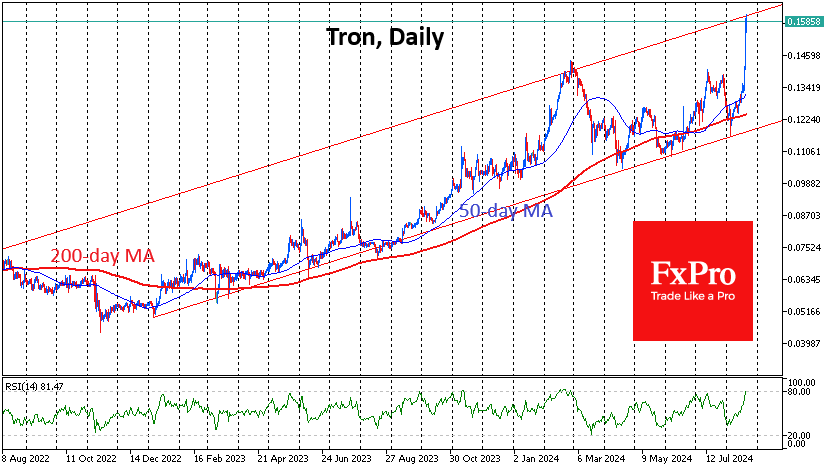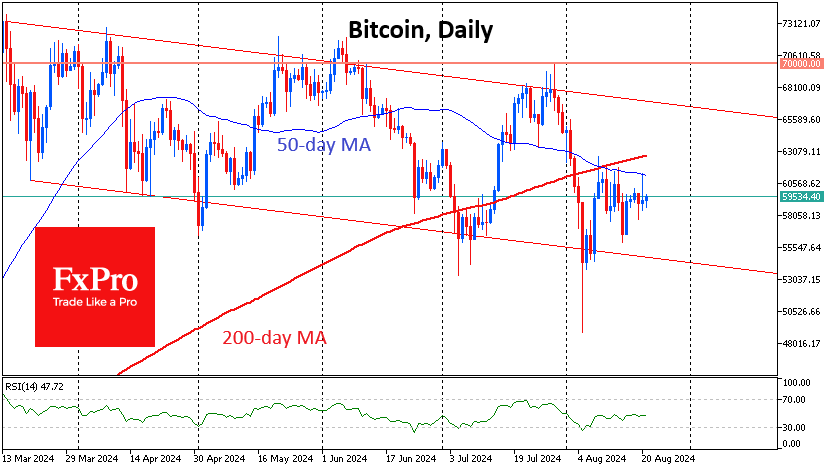Tron has climbed to a zone of turbulence
Market picture
The crypto market once again failed to break through the $2.15 trillion cap mark, falling 2.3% to $2.1 trillion, almost back to where it started Tuesday. The top coins lost between 1.2% (Doge) and 3.3% (Ethereum, Toncoin). The main exception is Tron, which rose 10% in 24 hours.

From the technical analysis side, Bitcoin retreated to the downside after another test of its 50-day average. The price of Bitcoin has been mostly in the $59-60K range for the past six days. Yesterday, it seemed that the main institutional demand was for other assets, such as gold.

Tron has gained almost 40% since the lows of the 5th of August, and we saw an important acceleration on Tuesday when the price reached $1.6. This move saw the coin return to the top 10 in terms of market capitalisation. TRX last traded at this level in May 2021 and briefly in 2018. This is an area of turbulence, as the coin has historically spent countless days above $1.6, so we expect a short-term correction. Also in favour of a pullback is the overbought RSI (above 80) on the daily timeframe, which has often preceded corrections, and the general cautious tone of cryptocurrencies.
News background
The wave of long liquidation has dried up, so VanEck believes Bitcoin could approach an all-time high (ATH) after the US election due to an influx of liquidity.
The Hash Ribbons indicator signals the end of bitcoin miners' capitulation, which means that their selling pressure on the market is easing, CryptoQuant noted. The bitcoin hash rate hit a new all-time high of 638 EH/s, confirming that miners are switching to more efficient hardware.
According to Wintermute, bitcoin options show traders' optimism after the US election. The most popular position is a call option with a strike price of $80K, which could indicate an expectation of new highs during this period.
Bitwise notes that despite BTC's volatility, institutional players are showing resilience. More than 60% of the world's top hedge funds own digital gold through ETFs.
China's Supreme Court recognised transactions in 'virtual assets' as a method of money laundering and enshrined it in the relevant law. Measures taken in 2021 to tighten policy on cryptocurrencies and mining led to their de facto ban in the country.
By the FxPro Analyst Team
-782024624.png)
-782024624.png)



















